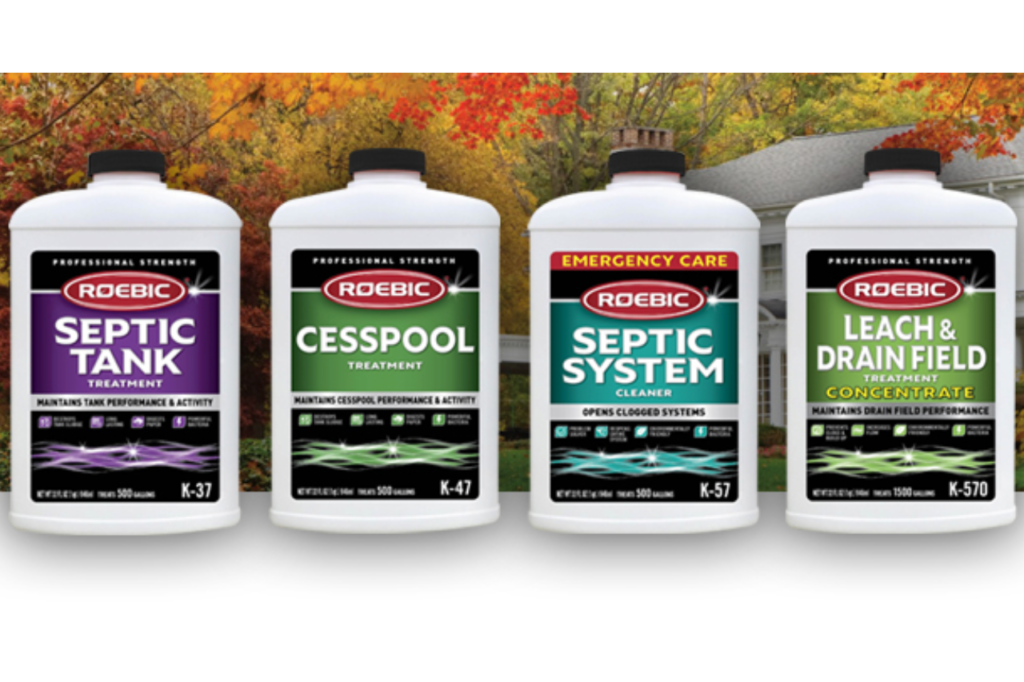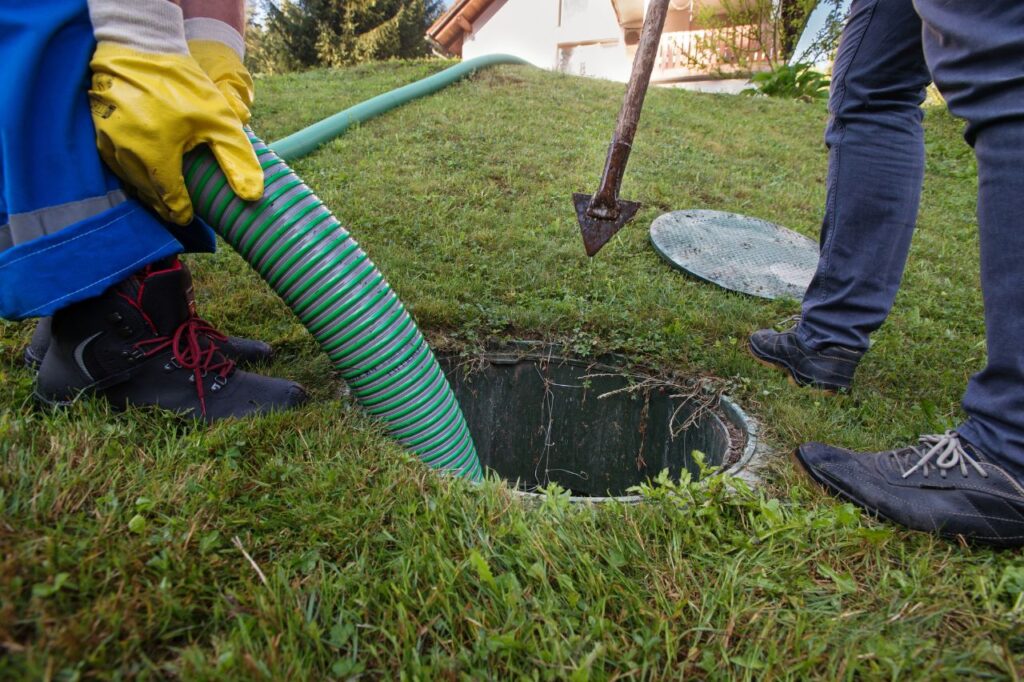Septic tanks play a vital role in managing waste for countless households around the world, yet they often remain shrouded in mystery. From maintenance and functionality to common issues and environmental impact, there are numerous questions that arise when it comes to septic tank systems. In this comprehensive guide, we will address 15 frequently asked questions that shed light on everything you need to know about septic tanks. Whether you’re a homeowner considering a septic tank installation or simply curious about how they work, this article will provide you with the answers and insights you seek, empowering you to make informed decisions and ensure the smooth operation of your septic system.
Do you need to vent a septic tank?
Septic tanks require proper ventilation to function effectively. Venting allows the release of gases that are produced during the decomposition of waste. Without proper ventilation, these gases can build up and cause pressure within the tank, leading to potential damage. Additionally, a lack of ventilation can result in foul odors escaping from the tank and infiltrating your property. Venting your septic tank is typically achieved through the installation of vent pipes that extend from the tank and exit through the roof of your home. These pipes allow air to flow in and out of the tank, promoting the decomposition of waste and preventing unpleasant odors. Regularly inspecting and maintaining your vent pipes is essential to ensure proper ventilation and prevent any issues that may arise. Remember, a well-vented septic tank is a healthy septic tank.
Do you need to treat your septic system?

Treating your septic system with care is crucial for its longevity and efficient operation. While septic systems have natural bacteria that help break down waste, it’s still important to take steps to maintain a healthy bacterial balance and prevent the accumulation of solids. One way to treat your septic system is by being mindful of what you flush down the drain. Avoid disposing of items such as grease, oil, feminine hygiene products, diapers, and chemicals, as these can disrupt the bacterial balance and clog the system. Additionally, using septic-safe cleaning products and avoiding excessive water usage can help maintain optimal conditions within the tank. Regular pumping of the tank is also necessary to remove accumulated solids and prevent backups. By treating your septic system with care and following best practices, you can ensure its longevity and avoid costly repairs.
Do you need septic tank additives?
Septic tank additives are products marketed to enhance the performance of septic systems. While some additives claim to improve bacterial activity, reduce odors, or break down solids more efficiently, their effectiveness is often debated. In fact, many experts argue that septic tank additives are unnecessary and can even be harmful. Septic systems naturally contain bacteria that break down waste, and these bacteria are typically able to function without the need for additives. In some cases, additives may disrupt the natural balance of bacteria in the tank, leading to potential issues. Furthermore, certain additives may contain chemicals that can harm the environment or interfere with the normal operation of the septic system. It’s generally recommended to avoid using septic tank additives and instead focus on regular maintenance, proper usage, and avoiding harmful substances.
How do you make a septic tank bigger?
In some cases, homeowners may find that their existing septic tank is too small to accommodate their needs. If you’re experiencing frequent backups or are planning to expand your home, you may need to consider increasing the size of your septic tank. Making a septic tank bigger typically involves installing a larger tank or adding additional tanks to your system. However, this should not be done without consulting a professional septic system designer or installer. They will assess your specific needs and ensure that any modifications comply with local regulations. It’s important to note that increasing the size of your septic tank may also require modifications to the drain field or other components of your system. Always consult a professional before making any changes to your septic tank to ensure proper functionality and compliance with regulations.
How do you make a septic tank smell better?

Foul odors emanating from a septic tank can be unpleasant and indicate possible issues with the system. If you’re experiencing unpleasant smells, there are several steps you can take to improve the odor situation. First, ensure that your septic tank is properly vented, as mentioned earlier. Proper ventilation allows gases to escape and prevents them from causing odor problems. Regular pumping of the tank is also important to remove accumulated solids that may be contributing to the odor. Additionally, avoid flushing items that can disrupt the bacterial balance, such as chemicals, and be mindful of what you put down the drain. Using septic-safe cleaning products and avoiding excessive water usage can also help prevent odors. If the odor persists, it’s best to consult a professional septic system service provider to identify and address any underlying issues.
What happens if your septic tank is not level?
Maintaining a level septic tank is essential for its proper operation. If your septic tank is not level, it can lead to various issues that can be costly to repair. A tilted or unlevel tank may cause solids to accumulate in one area, preventing proper settling and separation of waste. This can result in backups, clogs, and overall inefficiency of the system. Additionally, an unlevel tank may also put excessive strain on the pipes and connections, leading to leaks or damage. If you suspect that your septic tank is not level, it’s important to have it inspected by a professional. They will be able to assess the situation and recommend any necessary repairs or adjustments to ensure the proper functioning of your septic system.
How do you know when your septic tank needs replacing?
Septic tanks are designed to be durable and can last for decades with proper maintenance. However, there may come a time when your septic tank needs to be replaced. Several signs indicate that your septic tank may be nearing the end of its lifespan. If you notice frequent backups, slow draining fixtures, foul odors, or pooling water in your yard, it could be a sign of a failing septic tank. Additionally, if your septic system is old and has not been properly maintained, it may be more prone to issues and require replacement. Consulting a professional septic system service provider is crucial in determining whether your septic tank needs to be replaced. They will conduct a thorough inspection, assess the condition of the tank and its components, and provide recommendations based on their findings.
Does your septic work when the power is out?
Septic systems are designed to operate without electricity, making them reliable even during power outages. Unlike some other plumbing systems that rely on electric pumps, septic systems use gravity and natural processes to function. However, it’s important to note that certain components of your septic system may require electricity, such as alarms or aerators. In the event of a power outage, these components may not operate as usual. It’s a good idea to have a backup power source, such as a generator, to power essential septic system components during extended outages. Additionally, during a power outage, it’s advisable to reduce water usage to avoid overwhelming the system and potentially causing backups. Overall, while septic systems can continue to function during power outages, it’s essential to be mindful of your water usage and have a backup plan in place for crucial electrical components.
What is the most efficient septic system?
Several types of septic systems are available, each with its own benefits and efficiency levels. The most efficient septic system for your property depends on various factors, including soil conditions, local regulations, and the size of your household. One commonly used efficient septic system is the aerobic treatment unit (ATU). ATUs use aerobic bacteria to break down waste more efficiently than traditional anaerobic systems. These systems require electricity to power air pumps and provide oxygen to the bacteria. However, they produce higher-quality effluent and are often used in areas with challenging soil conditions or strict environmental regulations. Another option is a mound system, which is suitable for properties with high water tables or poor soil conditions. Mound systems elevate the drain field above the natural soil, allowing for better treatment and filtration of effluent. Ultimately, consulting a professional septic system designer or installer is crucial in determining the most efficient system for your specific needs and property.
Where do septic trucks empty their waste?

Septic trucks, also known as vacuum trucks or honey wagons, are used to pump and transport waste from septic tanks. After the septic truck has pumped the waste from your tank, you may wonder where it goes. Septic trucks typically transport the waste to specialized facilities designated for waste treatment and disposal. These facilities can include wastewater treatment plants, where the waste undergoes further treatment and processing. Other facilities may specialize in the disposal of septic waste, such as landfills or dedicated waste treatment sites. These facilities are designed to handle and process septic waste in an environmentally responsible manner, ensuring that it does not contaminate the surrounding land or water sources. It’s worth noting that the disposal of septic waste is regulated, and septic truck operators must comply with local regulations and guidelines to ensure safe and proper disposal.
Do septic tanks need electricity?
While septic tanks themselves do not require electricity to function, certain components of a septic system may rely on electricity. For example, septic tank alarms are typically powered by electricity and are used to monitor the level of wastewater in the tank. These alarms provide a warning if the tank is nearing capacity or if there are any issues with the system. Additionally, some septic systems utilize aerators, which introduce oxygen into the tank to promote the growth of aerobic bacteria. These aerators require electricity to operate. It’s important to ensure that your septic system has a reliable power source to power these components. In the event of a power outage, having a backup power source, such as a generator, can help ensure that essential electrical components of your septic system continue to function.
How are septic tanks made?
Septic tanks are typically made from durable materials such as concrete, fiberglass, or plastic. The choice of material depends on factors such as cost, local regulations, and personal preference. Concrete septic tanks are among the most common and have proven to be reliable and long-lasting. They are made by pouring concrete into a mold in the shape of a tank and allowing it to cure and harden. Fiberglass and plastic tanks are also popular choices and offer advantages such as lighter weight and ease of installation. These tanks are manufactured using specialized molds and techniques to ensure durability and proper functionality. Regardless of the material used, septic tanks are designed to withstand the weight of the soil and any loads imposed on them. Regular inspection and maintenance of the tank are important to ensure its continued durability and function.
Is septic tank effluent dangerous?
Septic tank effluent, which is the liquid waste that leaves the septic tank and enters the drain field, can contain harmful pathogens, bacteria, and other contaminants. However, when a septic system is functioning properly and is well-maintained, the effluent is treated and filtered by the soil in the drain field, reducing the risk of contamination. Properly designed and maintained septic systems are designed to protect human health and the environment by effectively treating and disposing of wastewater. However, it’s important to note that septic tank effluent should not come into contact with drinking water sources or be used for irrigation without further treatment. Regular maintenance, inspections, and adherence to best practices for septic system care are crucial in minimizing the potential risks associated with septic tank effluent.
Do I need approval to install or upgrade a septic tank?

In many jurisdictions, the installation, replacement, or upgrade of a septic tank requires approval and permits. Local regulations vary, but in general, you will need to obtain approval from the appropriate authorities before making any changes to your septic system. This ensures that the system is designed, installed, and maintained in compliance with health and safety standards. The approval process often involves submitting plans and specifications for the proposed septic system, paying applicable fees, and scheduling inspections. It’s important to consult with your local health department or regulatory agency to understand the specific requirements and procedures in your area. Failing to obtain the necessary approvals can result in fines, penalties, or the need to remove or modify the septic system at your own expense. Always consult with professionals and adhere to local regulations when installing or upgrading a septic tank.
Do I need to register my septic tank?
In some areas, it is mandatory to register your septic tank with the appropriate authorities. Registering your septic tank helps local health departments or regulatory agencies keep track of the location and condition of septic systems within their jurisdiction. This information is important for monitoring and maintaining public health and the environment. Registration requirements may vary, but generally, you will need to provide details such as the location of the septic tank, its capacity, and the date of installation. Some jurisdictions may require periodic inspections or pumping records to be submitted as part of the registration process. It’s important to check with your local health department or regulatory agency to determine if septic tank registration is required in your area. Registering your septic tank is not only a legal requirement but also a responsible step towards ensuring the proper maintenance and functioning of your septic system.
Final Thoughts:
Septic tanks are an essential part of waste management for countless households worldwide, yet they often remain a source of confusion. This comprehensive guide has addressed 15 frequently asked questions that demystify septic tank systems. Whether you’re a homeowner considering installation or simply curious about how they work, this article has provided you with the answers and insights needed to make informed decisions and ensure the smooth operation of your septic system. By understanding maintenance, functionality, common issues, and environmental impact, you are empowered to care for your septic tank effectively and enjoy a trouble-free waste management solution. Remember, a well-maintained septic system leads to a healthier home and environment.

